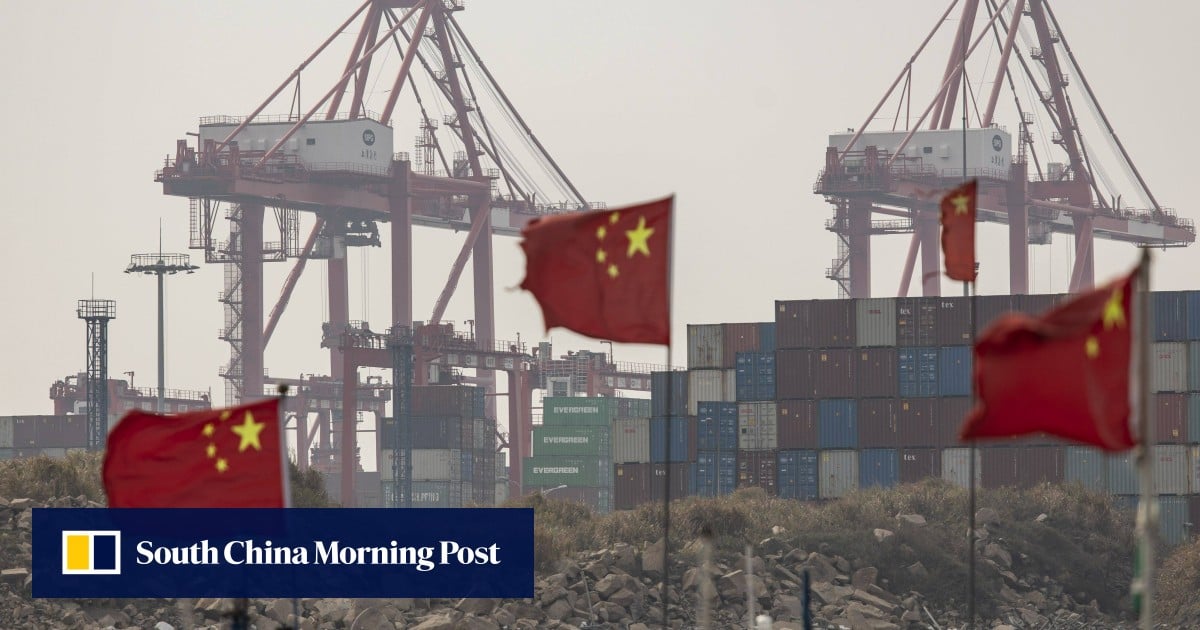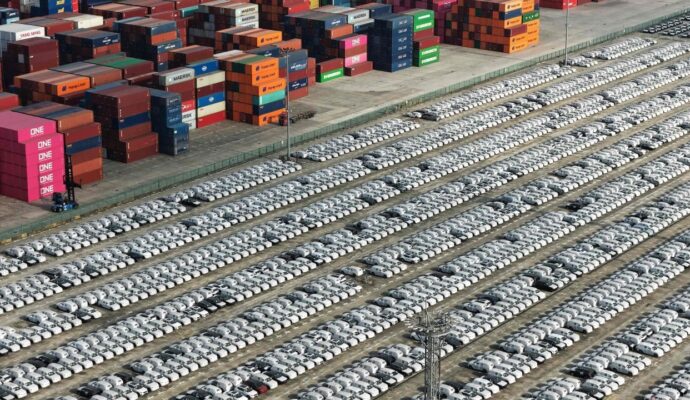
As national security concerns are shaping economic policy worldwide, the International Monetary Fund has warned that shifting investment trends and trade fragmentation could result in long-term losses in a world divided into two blocs centred on the United States and China.
In a speech delivered on Monday at the opening of the 20th World Congress of the International Economic Association in Colombia, Gita Gopinath – the first deputy managing director at the IMF – explained that China is “no longer” the largest trading partner of the US, as the US-China trade war since 2018 has “effectively” curbed Chinese imports of tariffed products. The comments were taken from an embargoed copy of her speech provided to the Post.
According to official Chinese customs data, the US was the third-largest trading partner of China up to November of this year, following the Association of Southeast Asian Nations and the European Union.
China is also “no longer” a prominent destination for outward US foreign direct investment, Gopinath added, and China is losing ground to emerging markets such as India, Mexico and the United Arab Emirates.
Made-in-China still dominates US holiday sales, but do Americans even care?
Made-in-China still dominates US holiday sales, but do Americans even care?
Gopinath also said there is “suggestive evidence” indicating that direct links seen between the US and China in the past are being replaced by indirect links.
“For example, large electronics manufacturers have accelerated relocating production from China to Vietnam, given US tariffs on Chinese goods,” she explained. “However, Vietnam sources most inputs from China, while most exports go to the US.
Figures from the Mexican Association of Private Industrial Parks suggest that one in five new businesses in the next two years will be Chinese.
Meanwhile, Gopinath said that “fault lines” are emerging as geoeconomic fragmentation increases, even though “there are no signs of a broad-based retreat from globalisation”.
“If fragmentation deepens, we could find ourselves in a new cold war,” she warned, adding that any descent into such conditions could bring about “an annihilation of the gains from open trade”.
“Ultimately … it is in [policymakers’] – and everyone’s – best interests to advocate strongly for a multilateral rules-based trading system and the institutions that support it,” she advised.
Gopinath also warned that the degree of economic interdependence between countries now is higher than in the past – global trade currently accounts for about 60 per cent of the world’s gross domestic product (GDP), compared with 24 per cent during the Cold War between the US and the Soviet Union from about 1946 to 1989.
Sustained export growth in ‘doubt’: 5 takeaways from China’s trade data
Sustained export growth in ‘doubt’: 5 takeaways from China’s trade data
“[A]s economies have become much more integrated into the global marketplace and through complex global value chains, this will likely raise the costs of fragmentation,” she said.
Another concern of fragmentation is the disconnection of international cooperation.
“The breadth of those challenges – from climate change to AI – is immense,” Gopinath said.
Citing a recent IMF analysis, she highlighted that the fragmentation of trade in minerals critical for the global green transition – such as copper, nickel, cobalt and lithium – would make the transition “more costly” because these minerals are geographically concentrated and not easily substituted.
A disruption in the trade of such essential minerals, she said, “would lead to sharp swings in their prices, suppressing investment in renewables and EV production”.


